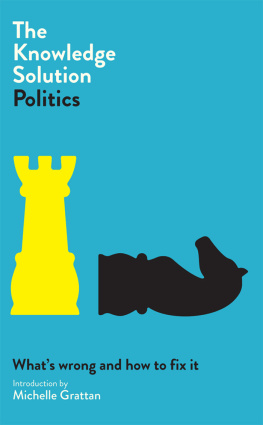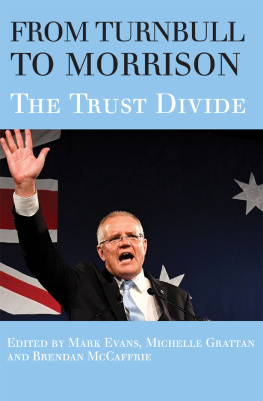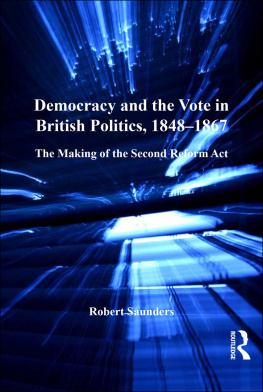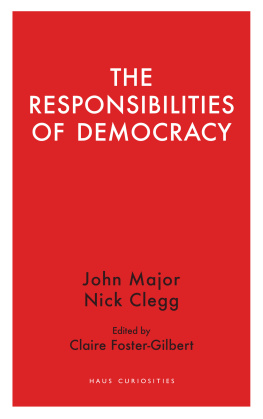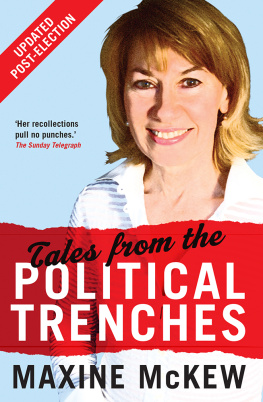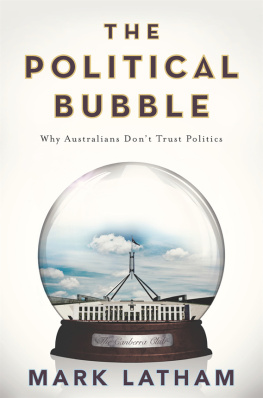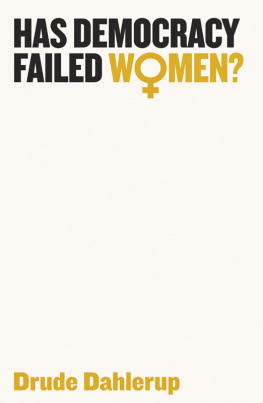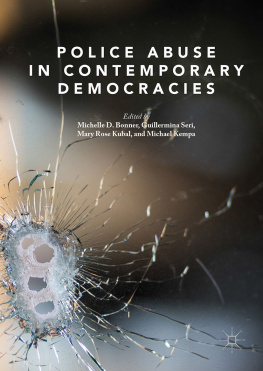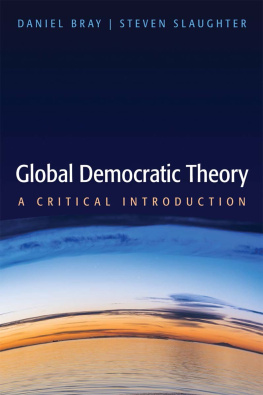MELBOURNE UNIVERSITY PRESS
An imprint of Melbourne University Publishing Limited
Level 1, 715 Swanston Street, Carlton, Victoria 3053, Australia
www.mup.com.au
First published 2018
Text individual contributors, various dates
Design and typography Melbourne University Publishing Limited, 2018
The contents for this title were curated under the RMIT Master of Writing and Publishing Fellowship. Thanks to Raphael Solarsh for his contribution to this project.
This book is copyright. Apart from any use permitted under the Copyright Act 1968 and subsequent amendments, no part may be reproduced, stored in a retrieval system or transmitted by any means or process whatsoever without the prior written permission of the publishers.
Every attempt has been made to locate the copyright holders for material quoted in this book. Any person or organisation that may have been overlooked or misattributed may contact the publisher.
Cover design by Josh Durham, Design by Committee
Typeset by Megan Ellis
Printed in Australia by McPhersons Printing Group
ISBN 9780522873832 (paperback)
ISBN 9780522873849 (ebook)
CONTENTS
Michelle Grattan
The Piping Shrike
Ruth Barcan
Maxine McKew
Brenton Prosser and Richard Denniss
Paul Kelly
Peter van Onselen
Jonathan Green
Katharine Murphy
Greg Combet, with Mark Davis
Dee Madigan
Sam Crosby
Gareth Evans
Paul Strangio, Paul 't Hart and James Walter
Tony Abbott
Bill Shorten
Gray Connolly
Terri Butler
Melissa Lucashenko
Noel Pearson
Stephen Bell and Michael Keating
Cheryl Saunders and Michael Crommelin
Richard Walsh
INTRODUCTION
Michelle Grattan
It is a paradox of our modern democracy that we have the conditions and tools to enable our political system to work better than ever before, yet all that seems to be discussed today is its dysfunction.
In this country people are, for the most part, relatively well educated and prosperous. In theory, that should encourage an interested and alert citizenry. The communications revolution empowers the electorateor should. So much more information is available and instantly attainable than only a generation or two ago, including tools for monitoring events and debates and thus improving interaction and accountability. Todays plethora of opinion polls ought to be positive for the process, providing constant feedback to decision-makers about what people think and want, and channels for voters to express their opinions.
Yet much of what should facilitate a smooth-running, engaged political system has helped corrode it. In politics, as in other aspects of life, abundance can be good but excess is often harmful. You can end up with too much of everything, and I think thats what weve got in politics today.
Were lumbered with what has been dubbed the continuous campaign, and that means, as Hugh Heclo, who was an academic expert on US democratic institutions, wrote in Norman Ornstein and Thomas Manns The Permanent Campaign and its Future (American Enterprise Institute and The Brookings Institution, 2000), [e]very day is election day. The leaders never hang up their high-vis vests. This is debilitating for decision-making because, as Heclo notes, there is a difference between campaigning and governingand it is exhausting for the public. Leaders always have to strike a balance between the time they spend with their feet under the desk and the days their boots are on the road, but things seem out of kilter. The permanent campaign encourages short-termism and puts the focus on the immediate media grab and headlines. It fans the politics of negativity, accentuates the adversarial and makes for hyper-partisanship. And it stretches the patience and concentration of voters.
The modern 24-hour news cycle both enables and fosters the permanent campaign, providing platform and spur. Political leaders have given up previous aspirational talk about not feeding the media beast. Tony Abbott tried that (for a nano-second) and it did not work too well. Now they argue that if they leave a gap, their opponents will fill the vacuum. Seeing so much of their politicians close up (and often too personal for comfort) has alienated voters, rather than made them to want to involve themselves in the political process.
The ability always to command attention, when there is so much airtime available, also helps small players turn themselves into minor political celebrities. Its a sign of the times that as voters have increasingly looked to minor parties, these often come with a personal branding. They have been based around individuals, whose names they have takenPauline Hansons One Nation, the Nick Xenophon Team (subsequently the Centre Alliance), the (now collapsed) Palmer United Party, the Jacqui Lambie Network. Name parties fit this age of celebrity. If they had been born in todays world, the Australian Democrats might have been The Don Chipp Party, after their early leading light (and conveniently shortened to Dons Party).
Far from providing a sophisticated channel of community feedback, constant polling has come to be a whip hand over leaders, especially if they are going through a difficult period. This can restrict their room to breathethat is, to leadand it is made for the medias horse race coverage of politics. It means that policy is often framed with an eye to how it will go down in the short term, a point that bureaucrats are forced to take account of in their advice to government. At the same time, polling is used as a tool of advocacy, with special interests commissioning polls that seldom fail to get the results they want and will almost always find a market in the media. With the rise of cheap robo-polls, there is a lot more junk polling around.
The professionalisation of politics has been building for decades, penetrating everythingministerial offices, messaging, campaigns, the recruitment of candidates, the operation of interest groups and the explosion of a commercial lobbying industry. The more politics is professionalised, the more insider it becomes, in the preoccupation with daily tactics and in its gene pool of players. An increased proportion of parliamentarians comes from the political class, having served as staffers to MPs before preselection. The grip of factions within the parties and the shrinking size of the major parties foster the closed shop, giving a leg-up to the insiders when it comes to preselections.

